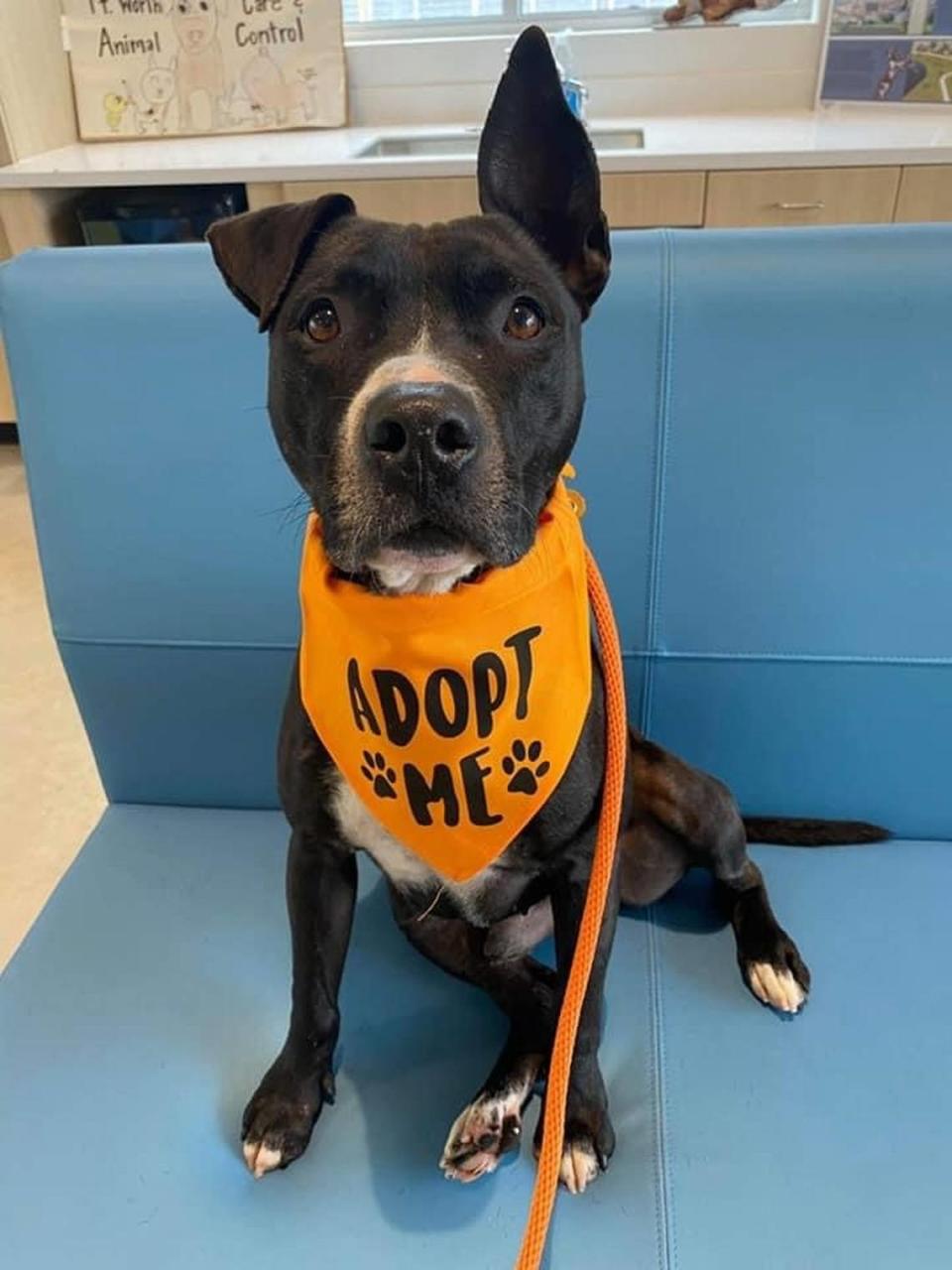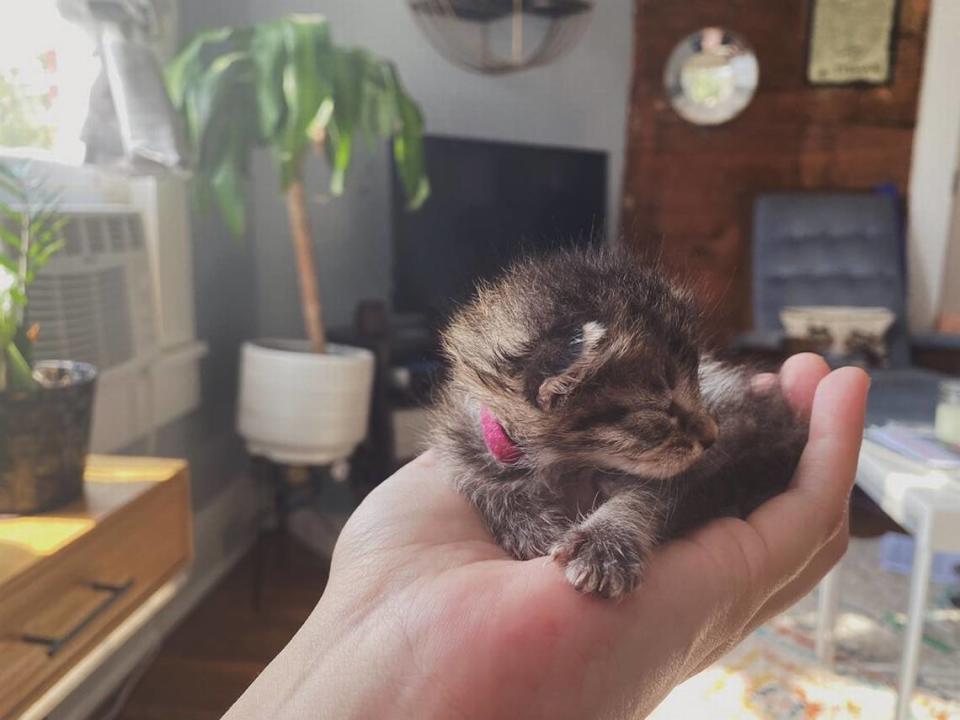Want to hang out with a dog for a day? Try this Fort Worth animal shelter program
Fort Worth animals desperately need the city’s help.
The Fort Worth Animal Shelter is packed past capacity, especially with dogs, and faces “dire overcrowding.” Over 800 dogs, cats and other animals await homes at the South Campus, North Campus and the two PetSmart Adoption Centers. Some dogs are in temporary kennels due to lack of space. An additional 273 dogs and cats are in foster care.
Summer is always a busy time for the shelter, but this season has been even more packed than usual. People move most often after the school year’s end, and sometimes, they leave their pets behind. Other times, people move into apartments with high pet fees and they cannot afford to keep the pet.
As a government agency, the shelter must take in every pet that lands at its door. And the distemper outbreak at the Humane Society of North Texas has not helped either. The Humane Society, which has eight locations in the Tarrant County area, has closed its animal intake centers because of the disease.
Cassie Davison, director of communications for the Humane Society, described the past few weeks as “one of the hardest times in sheltering I have ever experienced.” More than 150 dogs are currently under some form of medical care in the Humane Society shelter.
Fortunately, there are ways you might be able to help. Here are a few of those ways, ranging from a simple donation to longer-term care.
Out and Abouts
Several people were rightfully incredulous when I told them I was picking up a dog from the Fort Worth Animal Shelter.
I am a well-known cat person. I have two boys and plenty of feline-centric decor around my apartment. But when the shelter asked if someone could take a shelter dog to a Fort Worth library-sponsored event, for some reason, I said yes.

The program is called “Out and About.” You pick up a dog from the shelter for the day, or a few days, and spoil them appropriately. The doggy field trips help in a number of ways. Dogs who are able to spend even a few hours away from the shelter have much lower stress levels, Diane Covey, the spokeswoman for Fort Worth Animal Services, explained.
The shelter also asks people to fill out report cards about their dogs at the end of the Out-and-About. That information, like how the dog gets along with other dogs or how they react to crowds — is vital information to finding the dog the perfect home.
My Out and About lasted for about a day. When I pulled up to the shelter on a Saturday morning and the foster coordinators brought my dog-for-the-day out to see me, Bella was immediately ecstatic. The German shepherd mix bounded up to me and impatiently waited while we got her into a bright pink harness.
Bella and I went to the Fort Worth Library event, where employees had an adorable station set up where participants could paint their pets for free. I introduced Bella around, got to know her a little better and painted a portrait of her (do not even ask to see the painting, it’s been rightfully burned and buried).
I got Bella a Pup Cup — a cup filled with whipped cream from Starbucks — as a reward for being a very good girl. We scoped out a local restaurant with a large, dog-friendly patio. Once there, I immediately implemented mission “Get Bella Adopted Literally Today.” Everyone who came up to pet her (which was pretty much everyone because she is gorgeous and perfect) would hear about how this perfect angel had been surrendered to the animal shelter by her family, and it just so happened she was up for adoption.
After about two hours, the plan succeeded. One man started asking tons of questions about Bella, and he was amazed at how calmly she sat amidst the patio’s chaos.
Three days later, he sent me a video of Bella’s first walk with her new family.
You can fill out an application to volunteer for an Out and About on the shelter website. Studies show that dogs especially destress if they can spend even one night outside of the shelter.
Fostering
Another way to help the animals in need in Fort Worth? Fostering.
I did not think I would have time to foster, especially since I have two cats of my own. But when the shelter sent out the press release in May about the desperate situation there, I took a leap of faith. Within a few weeks, I had a troupe of kittens in the spare room of my apartment.
The first week was the hardest. They weren’t litter box trained and one of them decided the best bathroom option was my potted Monstera. Another wasn’t eating, so with the help of some of the other wonderful foster parents in the area, I quickly learned everything I could about syringe-feeding kittens. Surprisingly, I even managed not to get too attached and keep all of them, despite the running pool in the newsroom that I would end up with at least five cats.

Not all experiences are just like mine, of course. I don’t have kids, I live alone and I am generally OK with a bit of chaos in my life. But overall, it was a much smoother experience than I imagined it would be. Before fostering, I suggest doing lots of research about the supplies and dedicated time you will need to make sure the cats are healthy and happy. Cats that are under 8 weeks old, are considered “seniors” or are sick require more time and care.
Fostering a dog also requires a lot of research, space and time. Before making the decision to foster a dog, Rover — a pet-care service — recommends knowing your limits and thinking through the decision thoroughly. If you have pets of your own, you should take into account how they might react.
According to the Fort Worth Animal Shelter, foster caregivers are most needed for medium-large adult dogs who have been in the shelter for longer than 30 days, puppies or kittens or moms with newborns that are too young to be adopted, and pets recovering from an illness or injury needing some extra TLC and medical care.
If you’re interested in fostering with the Fort Worth Animal Shelter, fill out a foster application at the shelter’s website, available through the fortworthtexas.gov webpage. The shelter provides vaccinations, medical care, and spay and neuter surgeries. They also give foster parents supplies, such as food, beds, toys and leashes, if they’re available.
To foster with the Humane Society of North Texas, visit its website at https://www.hsnt.org/become-a-foster-hero.
Donations and volunteering
Which brings us to the next way you might be able to help: donations and volunteering.
Volunteers can provide much-needed assistance and are needed at every location, Diane Covey with Fort Worth Code Compliance said. Everything they do helps the pets tremendously: walking dogs, human interaction with the cats, playtime and even helping re-fill outdoor water bowls.
Whether you’re able to donate money or supplies to the shelter, every bit helps. The link for donations is on the shelter website. The Humane Society of North Texas also needs donations, which can be sent via their website at https://www.hsnt.org/donate. The Humane Society has a variety of donation programs, including animal sponsorship, car donations, Amazon wishlists and grocery rewards-programs. Those are detailed at https://www.hsnt.org/ways-to-give.
To keep up-to-date on the shelter’s needs, follow the Fort Worth Animal Care and Control on Facebook and Twitter at @FortWorthACC. Sharing those social media posts can also help gets pets adopted.
The Fort Worth Animal Shelter and the Humane Society of North Texas have a variety of ways to volunteer. They both need people who can help socialize animals (read: play with cats and dogs), work adoption events and more.

